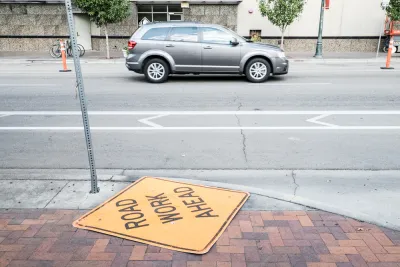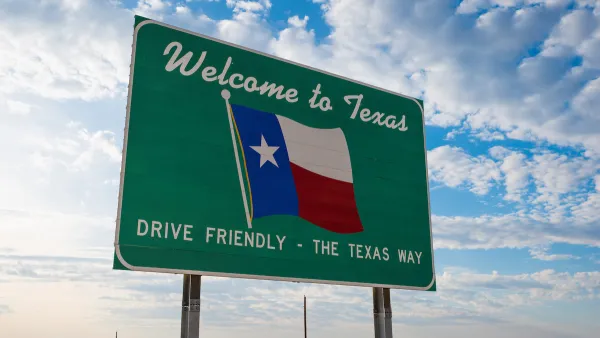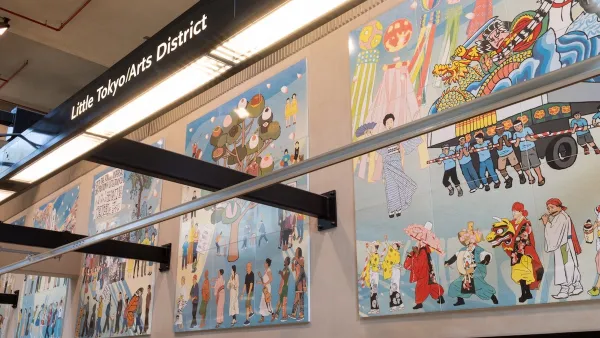Idaho state law prevents local voters from implementing the sales taxes that generate revenue to match federal funding for transportation projects, taking local and regional projects out of the running for many federal grant programs.

Kevin Fixler reports on a dilemma facing transportation planners in Idaho as Congress considers the Infrastructure Investment and Jobs act.
If the funding package passes and becomes law, it would guarantee Idaho billions of dollars over the next five years toward roads, bridges and other major infrastructure projects. Tens of millions of dollars for expansions of the state’s broadband internet and electric vehicle charging networks are also part of the hefty package, as is almost $200 million toward public transit improvements, according to a White House fact sheet.
Fixler notes that the earmarking process has already aquired funding for a host of projects around the state, including the Treasure Valley improvement project, which "imagines installing passenger shelters and bus pullouts, as well as real-time electronic route information at stops, to help build upon Valley Regional Transit’s ridership."
However, another list of projects that could potentially be funded by the federal infrastructure bill is off the table, due to a state law that prohibits local voters from implementing local sales taxes to to fund services, including transportation.
Matt Stoll, executive director of COMPASS, the region’s transportation planning agency, said this factor is the primary reason why expansions of the Treasure Valley’s public transit network remain stuck in neutral. The statewide shortcoming also prevents agencies such as VRT from applying for grants and other competitive pots of federal money to support the system, because the agency does not have the matching funds — from 20% up to 50% of the award — it needs to qualify.
The article includes more details on the state of transportation funding in a state that grew by 17 percent in the past decade, according to 2020 Census data.
FULL STORY: Idaho law limits how infrastructure bill can aid transit, leaves future riders waiting

Analysis: Cybertruck Fatality Rate Far Exceeds That of Ford Pinto
The Tesla Cybertruck was recalled seven times last year.

National Parks Layoffs Will Cause Communities to Lose Billions
Thousands of essential park workers were laid off this week, just before the busy spring break season.

Retro-silient?: America’s First “Eco-burb,” The Woodlands Turns 50
A master-planned community north of Houston offers lessons on green infrastructure and resilient design, but falls short of its founder’s lofty affordability and walkability goals.

Test News Post 1
This is a summary

Analysis: Cybertruck Fatality Rate Far Exceeds That of Ford Pinto
The Tesla Cybertruck was recalled seven times last year.

Test News Headline 46
Test for the image on the front page.
Urban Design for Planners 1: Software Tools
This six-course series explores essential urban design concepts using open source software and equips planners with the tools they need to participate fully in the urban design process.
Planning for Universal Design
Learn the tools for implementing Universal Design in planning regulations.
EMC Planning Group, Inc.
Planetizen
Planetizen
Mpact (formerly Rail~Volution)
Great Falls Development Authority, Inc.
HUDs Office of Policy Development and Research
NYU Wagner Graduate School of Public Service




























